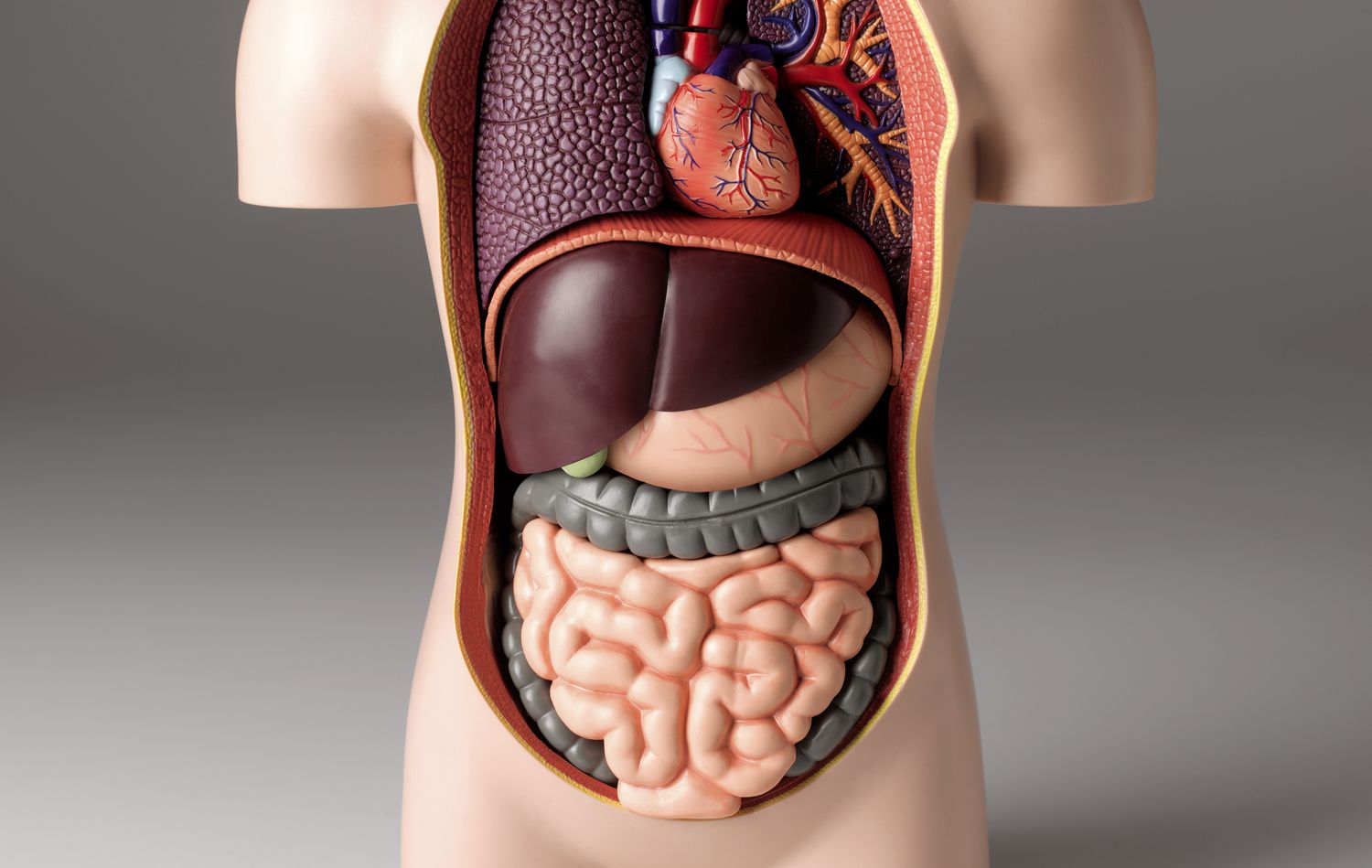
Organs are fascinating and complex structures that play a crucial role in the functioning of the human body. From the heart, which tirelessly pumps blood throughout our system, to the brain, the control center of our thoughts and actions, organs are integral to our survival and well-being. But how much do we really know about these incredible biological wonders?
In this article, we will explore 20 astounding facts about organs that will leave you in awe of the incredible capabilities and intricacies of the human body. From the largest organ in the body to the ability of some organs to regenerate, prepare to be amazed by the wonders that lie within us. So, let’s dive deeper into the world of organs and uncover some mind-blowing facts that will enhance your understanding of our miraculous bodies.
Key Takeaways:
- The human body’s organs, such as the brain, liver, and heart, work together to ensure our survival and well-being, performing remarkable functions that keep us healthy and alive.
- From the brain’s complex cognitive processes to the heart’s vital pumping action, our organs are truly awe-inspiring and deserve our appreciation for their incredible feats.
The human brain is the most complex organ in the body.
The intricate network of neurons and synapses in the brain allows for complex cognitive processes, such as thought, memory, and emotion.
The liver is the largest internal organ.
Located in the upper right side of the abdomen, the liver performs a wide range of functions, including detoxification, metabolism, and the production of bile.
The skin is the body’s largest organ.
Not only does the skin protect our internal organs, but it also regulates body temperature and allows us to sense touch, pressure, and pain.
The heart beats approximately 100,000 times a day.
This vital organ pumps oxygen-rich blood throughout the body, ensuring the delivery of nutrients and removal of waste products.
The lungs contain about 300 million alveoli.
These tiny air sacs in the lungs are responsible for exchanging oxygen and carbon dioxide during the process of respiration.
The kidneys filter about 150 to 180 liters of blood every day.
This vital organ removes waste products, excess fluid, and toxins from the bloodstream, helping to maintain a healthy balance of salts and water in the body.
The small intestine is around 7 meters long.
This part of the digestive system is where most of the absorption of nutrients from food takes place.
The pancreas produces insulin, a hormone that regulates blood sugar levels.
Imbalances in insulin production can lead to diabetes, a chronic condition characterized by high blood sugar levels.
The spleen plays a crucial role in maintaining a healthy immune system.
It helps filter out old or damaged red blood cells and stores a reserve of blood that can be released in case of emergency.
The stomach produces hydrochloric acid, which aids in the digestion of food.
This acidic environment helps break down proteins and kill bacteria present in the food we consume.
The gallbladder stores and releases bile, which aids in digestion.
Bile is produced by the liver and helps in the breakdown and absorption of fats.
The uterus can expand up to 500 times its normal size during pregnancy.
This organ provides a protective environment for the developing fetus and plays a crucial role in childbirth.
The adrenal glands produce hormones that help regulate metabolism, immune function, and stress response.
These small glands located on top of the kidneys secrete hormones such as adrenaline and cortisol.
The skeleton is made up of 206 bones.
These bones provide support, protection, and movement to the body, and also serve as a reservoir for minerals like calcium and phosphorus.
The thymus gland is responsible for the development of T-cells, a type of white blood cell that plays a key role in the immune response.
Located in the chest, the thymus gland is most active during childhood and gradually shrinks as we age.
The optic nerve is responsible for transmitting visual information from the eye to the brain.
This crucial nerve allows us to perceive the world around us and plays a vital role in vision.
The appendix is often regarded as a vestigial organ with no known function.
Although its precise purpose remains unclear, it is believed to play a role in the immune system.
The thyroid gland produces hormones that regulate metabolism, growth, and development.
Imbalances in thyroid hormone levels can lead to various health conditions, such as hypothyroidism or hyperthyroidism.
The pituitary gland, often called the “master gland,” controls the release of hormones throughout the body.
Located at the base of the brain, this gland influences growth, metabolism, reproduction, and other vital functions.
The intestines contain trillions of beneficial bacteria known as the gut microbiota.
These microbes play a crucial role in digestion, immune function, and overall health.
Conclusion
The human body is a complex and fascinating machinery, and organs play a vital role in its functioning. From the beating heart to the powerful brain, each organ serves a unique purpose that contributes to our overall health and well-being. Understanding these organs and their functions helps us appreciate the miracles of the human body and inspires us to take better care of ourselves.
Whether it’s the intricate network of blood vessels in our lungs or the filtering power of our kidneys, organs are responsible for keeping us alive and functioning. They are a testament to the wonders of nature and the incredible complexity of life. Next time you marvel at your ability to think, breathe, or digest your food, remember to give credit to the astounding organs that make it all possible!
FAQs
1. What is an organ?
An organ is a specialized group of tissues that perform a specific function in the body. Examples include the heart, lungs, liver, and brain.
2. How many organs are in the human body?
There are 79 organs in the human body, including both primary and secondary organs.
3. Can organs regenerate?
Some organs, like the liver, have the ability to regenerate. However, not all organs have this capacity.
4. What is the largest organ in the human body?
The largest organ in the human body is the skin, which covers and protects the underlying organs and tissues.
5. What is the smallest organ in the human body?
The smallest organ in the human body is the pineal gland, located deep within the brain.
6. Can you live without certain organs?
While some organs are vital for survival, such as the heart or brain, others can be removed or functionally impaired without causing immediate death.
7. How do organs communicate with each other?
Organs communicate with each other through chemical and electrical signals, allowing them to coordinate and regulate various bodily functions.
8. Can you donate organs while alive?
Yes, it is possible to donate certain organs, such as a kidney or part of the liver, while still alive. This is known as living organ donation.
9. Can diseases affect multiple organs?
Yes, many diseases can affect multiple organs, compromising their normal function and leading to various health issues.
10. How can I keep my organs healthy?
Maintaining a healthy lifestyle, including regular exercise, a balanced diet, and avoiding harmful substances like tobacco and excessive alcohol, can contribute to overall organ health.
Organs are truly remarkable, but there's still more to explore! Delve into the captivating world of organogenesis, where you'll uncover the astonishing process of organ development. Chemistry enthusiasts will find themselves engrossed in the fascinating realm of organic chemistry, with its captivating facts and intriguing concepts. Nature lovers, prepare to be amazed by the incredible relationships between organisms, as you discover the astonishing world of commensalism. Each topic offers a unique perspective on the intricate workings of life, promising to keep you engaged and eager for more.
Was this page helpful?
Our commitment to delivering trustworthy and engaging content is at the heart of what we do. Each fact on our site is contributed by real users like you, bringing a wealth of diverse insights and information. To ensure the highest standards of accuracy and reliability, our dedicated editors meticulously review each submission. This process guarantees that the facts we share are not only fascinating but also credible. Trust in our commitment to quality and authenticity as you explore and learn with us.


